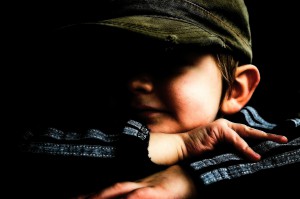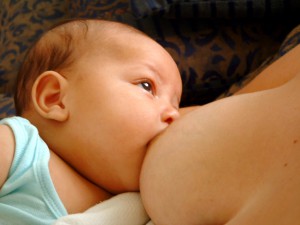“Growing up in a household where your emotions are either actively discouraged or punished, or simply ignored takes a toll on you, a developing child. You internalize the message that your feelings, your needs, your views don’t matter. It’s a belief that’s rooted in childhood feelings. That belief/feeling is powerful, and it stays with you throughout your life.” ~ Jonice Webb, PhD, in “Childhood Emotional Neglect: The Enemy of Assertiveness,” Psych Central
 In this week’s Editor’s pick, Attachment Parenting International is shedding light on a form of maltreatment of children that is often kept in the dark: emotional abuse. Unlike physical abuse, there is little awareness concerning emotional abuse — it’s less visible and is rarely covered by the media.
In this week’s Editor’s pick, Attachment Parenting International is shedding light on a form of maltreatment of children that is often kept in the dark: emotional abuse. Unlike physical abuse, there is little awareness concerning emotional abuse — it’s less visible and is rarely covered by the media.
Emotional abuse is often misunderstood, as it’s complex and more difficult to recognize. Although it’s pervasive, and can be as damaging and painful to children as physical and sexual trauma, it’s not considered as troublesome as physical abuse.
Emotional abuse of a child is commonly defined as a pattern of behavior by parents or caregivers that has negative mental impact on the child. It’s also referred to as psychological maltreatment. Some examples of mental abuse are:
- name-calling
- verbally insulting
- shaming or humiliating
- threatening violence (with or without carrying out threats)
- ridiculing or criticizing the child’s appearance, abilities or fears
- failing to express warmth and tenderness to the child
- neglecting to show interest in the child’s thoughts, feeling or activities.
Emotional needs are intrinsic to our nature as human beings. Attachment Parenting promotes an approach that applies sensitive parental response and practicing nurturing parenting methods that foster strong emotional bonds — also known as secure attachment — between children and their parents. Secure attachment, trust and mutual respect are the building blocks of a strong, healthy emotional foundation that follows children into adulthood.
With increasing awareness and evolved societal norms, many people move away from spanking and other forms of physical abuse, check this article about how a sex crime lawyer can help if this happens at home. Consequently, however, there is more temptation to shift that punishment attitude toward verbal responses — which may seem innocuous — not realizing that some common responses are actually a form of emotional abuse. Here are a few examples of such comments:
- “I wish you were more like your brother.”
- “If you don’t do as I say, I will leave you!”
- “You’re the reason Mommy is sad.”
- “Shut up!”
- “You are a bad boy.”
- “You think you’re so special, don’t you?”
Verbal abuse is the most common form of emotional maltreatment and results in long-term harm. As noted in this Health Day article, “Yelling at Children (Verbal Abuse),” research shows that verbally abused children are more likely to:
- become victims of abuse later in life
- become abusive themselves
- become depressed and self-destructive later in life
- develop anxiety.
We are all familiar with adage, “Sticks and stones may break my bones, but names will never hurt me.” But children and adults who have been verbally abused will tell you otherwise: Words are powerful and they do hurt, especially when inflicted upon children by their parents — the leading authority figures in their life and the adults children look to for protection, not only from physical harm but also emotional damage.
There are some who excuse name-calling, shaming or other forms of abuse as effective means to discipline or “toughen up” kids — an outdated idea to make them more resilient and better adapt to the “real world” — when, in fact, the contrary is true: These patterns of behavior by parents produce deep emotional and mental scars that undermine self-esteem and affect the ability to have healthy, trusting relationships.
In this Psych Central article, “Childhood Emotional Neglect: The Enemy of Assertiveness,” Jonice Webb, PhD, uncovers that the reason assertiveness is so much more difficult for some people to learn and practice than others is because “assertiveness is most difficult for those who grew up in households that either actively or passively discouraged emotional expression,” both examples of childhood emotional neglect.
Emotional abuse is painful. It penetrates into the heart and the soul of a child who needs to be loved, cared for, and responded to with sensitivity and compassion by his caregivers — not ignored, not humiliated, and not insulted.
A 2015 study, published in the journal JAMA Psychiatry, found that regardless of the type of maltreatment endured — physical, sexual or emotional — children suffered similar consequences. As reported by Reuters, Dr. William Copeland, a psychiatry researcher at Duke University in Durham, North Carolina, USA, stated that: “This study is about righting a longstanding error and prejudice about the differences between these common childhood adversities,” adding: “It suggests that whether we are talking about prevention, screening or treatment, our notions of childhood mistreatment need to be broader and more holistic than they have been. There are no hierarchies when it comes to child maltreatment.”




